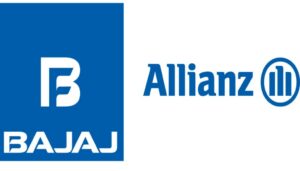FD or SCSS? Best low-risk investment options for senior citizens

Pune, 26 April 2024: For senior citizens, financial security and steady income are paramount concerns. Traditional investments offering guaranteed returns and minimal risk are attractive to investors. This is in contrast to the high-yield, high-risk world of stocks and equity markets.
Two popular investments for senior citizens in India are Fixed Deposits (FDs) and the Senior Citizen Savings Scheme (SCSS).
Fixed Deposits
Fixed deposits are one of the most prominent low-risk investment options in India. Offered by banks and NBFCs, FDs involve depositing a lump sum for a predetermined tenor. The interest rate is fixed at the time of deposit.
The interest is paid out either periodically or compounded for the entire tenor.
Benefits of FDs for Senior Citizens
Higher Returns
Most FD issuers offer higher interest rates to senior citizens. In some cases, issuers may provide extra interest rates to super senior citizens aged above 80 years. This is useful for individuals looking to increase their returns through low-risk investments.
Guaranteed Returns
FDs offer guaranteed returns, providing a predictable income stream throughout the investment term. This makes FDs an attractive option for those who want to avoid volatile markets. You can also determine your interest earnings through a fixed deposit calculator.
Flexible Interest Payout
While the funds in an FD are locked for the tenor, some issuers allow premature withdrawals. This provision enables investors to withdraw their funds in times of need.
Deposit Insurance
Bank deposits up to ₹5 Lakhs per account are insured by the Deposit Insurance and Credit Guarantee Corporation (DICGC).
Drawbacks of FDs for Senior Citizens
Taxation of Interest
Interest income earned on FDs is taxable as per the investor’s income tax slab. This can potentially reduce the overall return on investment.
Potentially Lower Returns Compared to Inflation
FD interest rates typically remain stable or increase marginally over time. However, inflation can erode the purchasing power of the invested amount over the long term.
Early Withdrawal Penalty
Premature withdrawal from FDs may incur a penalty on the interest earned, reducing the overall return. This could prevent individuals from accessing funds in times of need.
Senior Citizen Savings Scheme (SCSS)
The Senior Citizens’ Saving Scheme is a retirement benefits government program. It allows senior citizens to invest a lump sum and enjoy regular income and tax benefits. The investment can be made individually or jointly.
Operated through Post Office branches or authorised banks, senior citizens can open an SCSS account to avail its benefits.
Benefits of SCSS for Senior Citizens
Government Guaranteed Returns
SCSS offers guaranteed returns, but their rates are set by the government and typically higher than bank issued FDs. This translates to a potentially higher and predictable income stream for senior citizens.
Tax Benefits
Under Section 80C of the Income Tax Act, 1961, an investment of up to ₹1.5 Lakhs in SCSS qualifies for tax deductions. This can significantly reduce the overall tax liability for senior citizens.
High Investment Limit
SCSS comes with a higher investment limit of up to ₹30 Lakhs per individual. This feature can be beneficial for senior citizens with larger sums to invest.
Regular Quarterly Interest Payments
The SCSS automatically pays interest quarterly. This provides senior citizens with a regular source of income to meet their ongoing expenses.
Drawbacks of SCSS for Senior Citizens
Limited Liquidity
The SCSS has a fixed tenor of five years with only one window for premature withdrawal, which is after one year from the account opening. This limited liquidity can be a drawback for senior citizens who might require access to their funds before the maturity period.
Tax Implications on Interest Income
While the SCSS offers tax benefits, the interest income is still taxable as per the investor’s income tax slab. This can reduce the net return after considering taxes.
Government Backing, But Not Deposit Insurance
While the SCSS is a government-backed scheme, it does not fall under the purview of deposit insurance offered by the DICGC.
Ultimately, a well-rounded investment strategy for senior citizens might involve a combination of both FDs and SCSS. Allocating a portion of the investment portfolio to FDs can provide flexibility and liquidity. Meanwhile, utilising the SCSS can maximise returns, secure tax benefits, and generate a regular income stream.
Financial security is the basis of a comfortable and stress-free retirement for senior citizens. FDs and SCSS offer low-risk investment options tailored to their needs. By carefully considering various factors, senior citizens can make informed decisions to secure their financial future.
Consulting with a qualified financial advisor can provide further personalised guidance and ensure a well-diversified investment portfolio that caters to their specific circumstances








